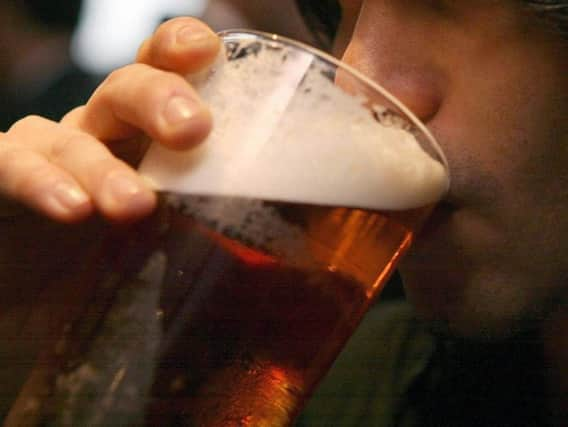Heavy toll of drink and smoking


Health bosses are aiming to reduce the number of smokers from 17 per cent to 10 per cent, inspired by policies in the US.
Such an achievement would cut avoidable illnesses by half, boost economic productivity and result in less money – around £150m – being spent on cigarettes, and more on goods and services.
Advertisement
Hide AdAdvertisement
Hide AdMeanwhile, the cost of problem drinking is putting pressure on Sheffield’s NHS, police, social services and businesses, according to the council’s new alcohol strategy, which highlighted Burngreave, Firth Park, Walkley and Southey as areas with the highest levels of drink-related crime outside the city centre.
It is estimated around 130 people in Sheffield are dying each year because of alcohol abuse, with the vast majority of them being men.
One in five people in the city drink at levels that increase their risk of developing an alcohol-related illness, with one in 14 at higher risk.
A report said: “Alcohol costs Sheffield as a city an estimated £205.4m per annum, with £38m spent by the NHS, £67.8m spent by criminal justice agencies and licensing, £81.5m lost to the workplace/wider economy and £20.6m on services for children and families.”
Advertisement
Hide AdAdvertisement
Hide AdThere were 646 crimes related to drink in central Sheffield in 2013/14, 129 in Burngreave, 124 in Firth Park, 107 in Walkley and 105 in Southey.
Proposals in the strategy include a new drive to remove ‘cheap, high-strength’ drinks from shops’ shelves, and encouraging more people to take up treatment.
Greg Fell, Sheffield’s director of public health, said his counterpart in New York, a doctor called Thomas Frieden, saw dramatic results by banning smoking in bars, capping the sale of fizzy drinks and outlawing ‘trans fats’ in restaurants.
A Heart of Sheffield programme will encourage people to kick the habit, while the city’s current Stop Smoking service is to be reviewed.
In Sheffield, ‘too many women take up smoking again after having their first child’, with smoking rates during pregnancy ‘much higher’ than the national average for England, said a report by Mr Fell.